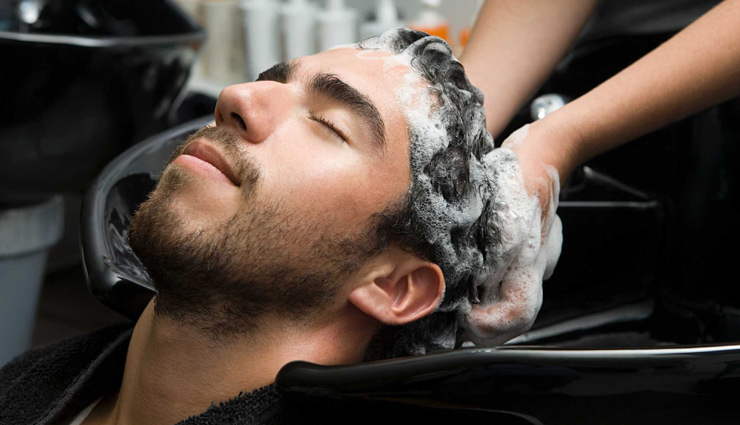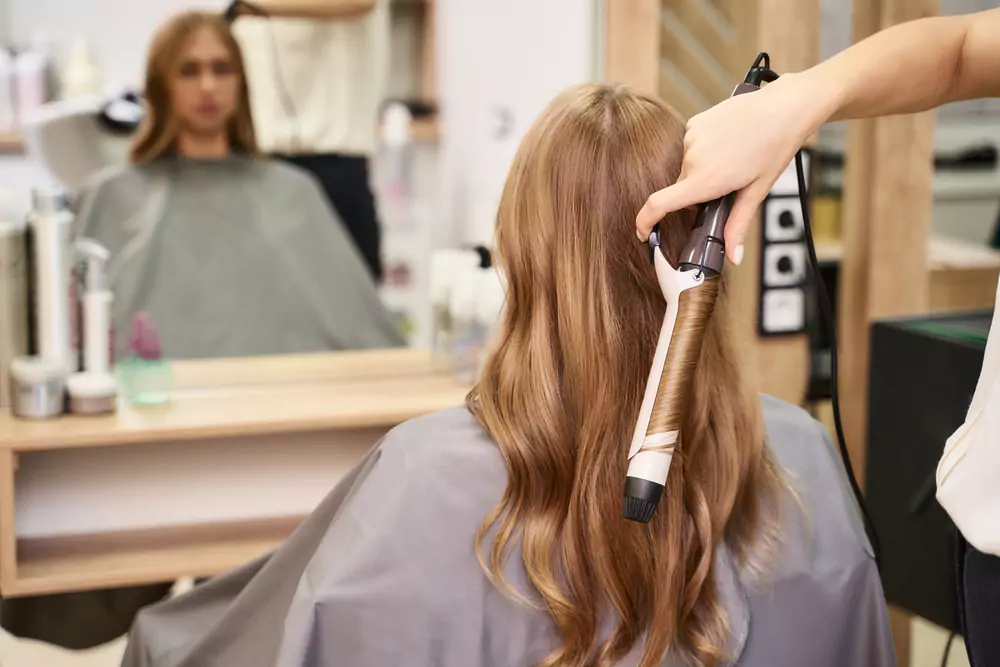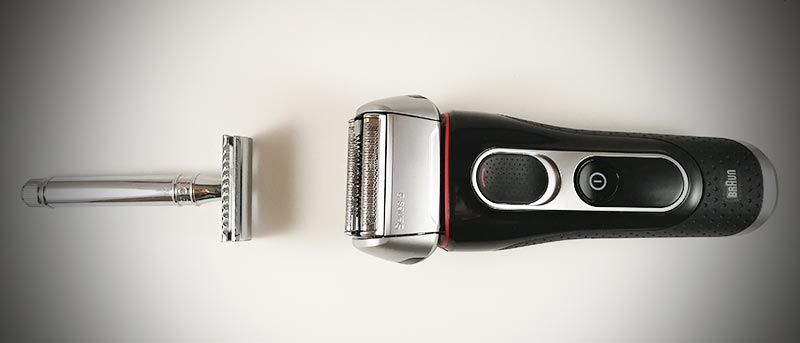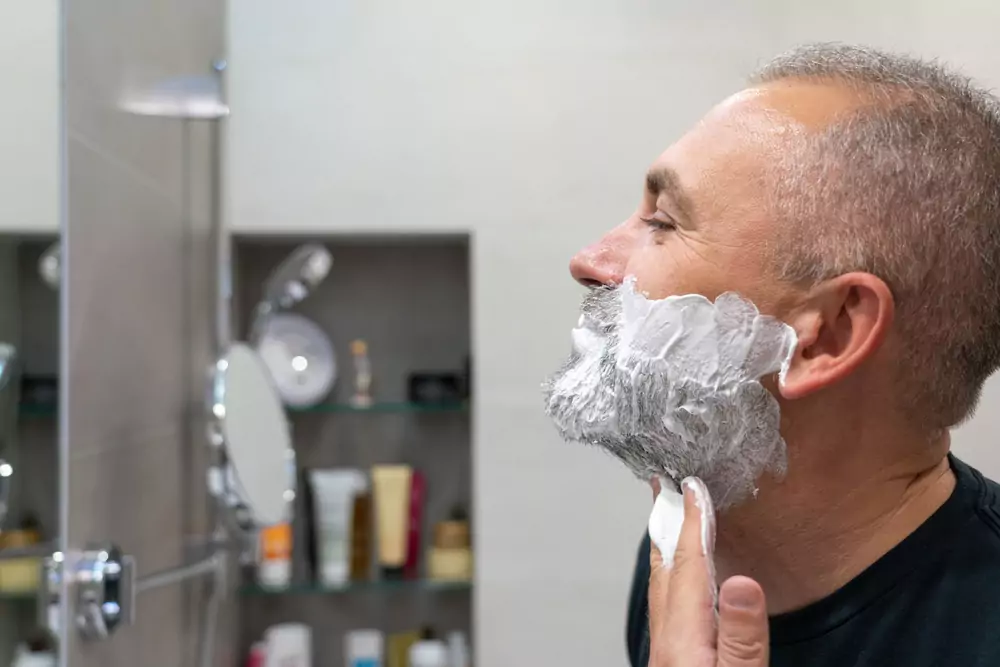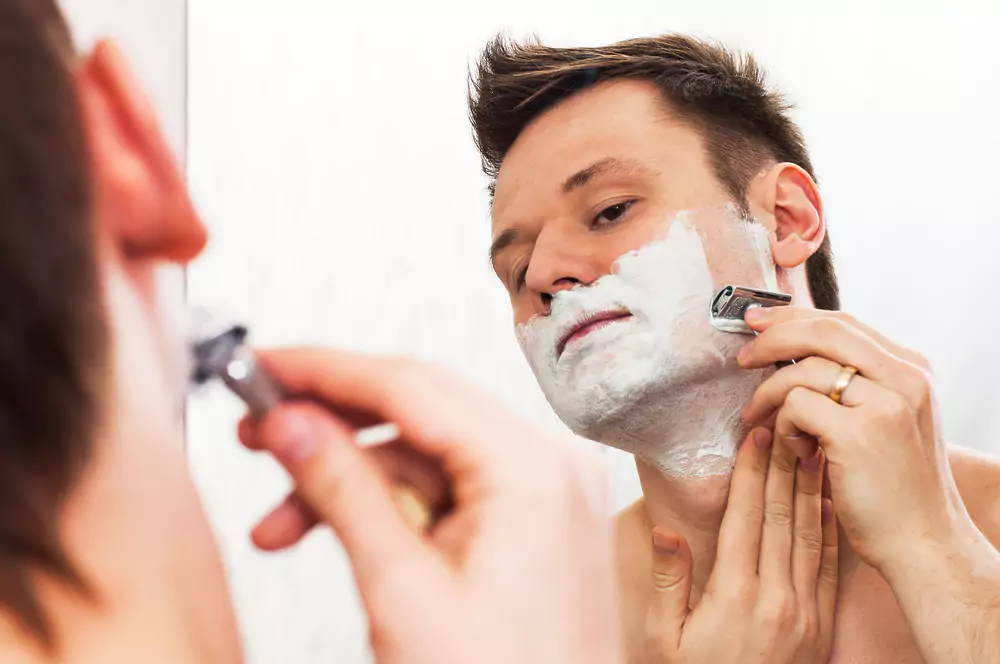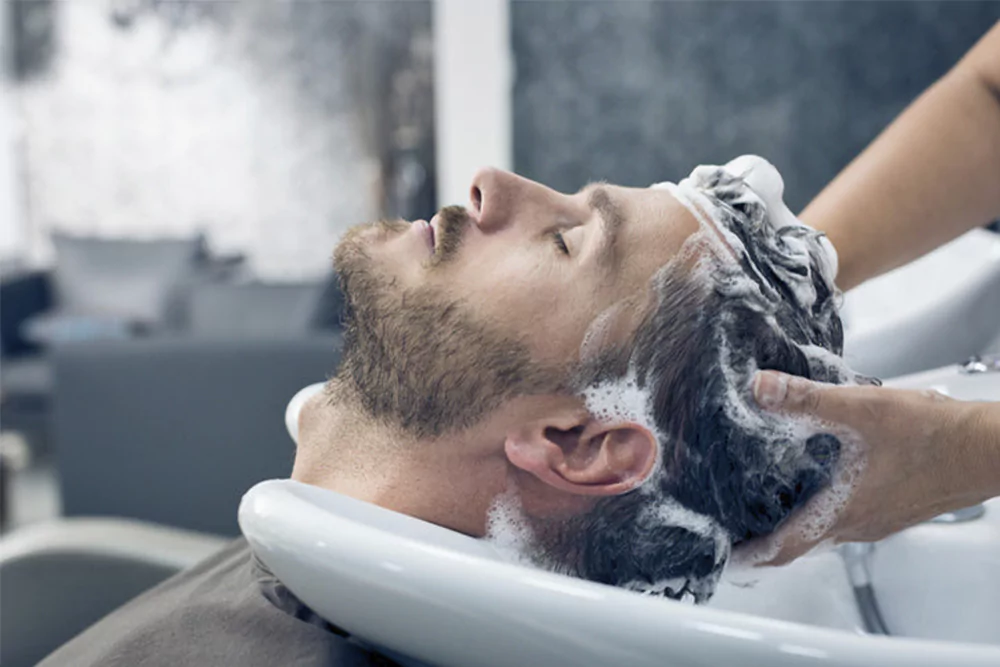
How Often Should You Wash Your Hair?
How Often Should You Wash Your Hair?
As someone who has struggled with oily hair for years, I know how important it is to find the right hair-washing frequency. I’ve tried every method under the sun, from daily washing to once-a-week routines. However, my hair always seemed to be either too greasy or too dry, leaving me frustrated and confused.
The problem is not unique to me. Many people around the world face the same dilemma: how often should you wash your hair? The answer, it turns out, is not a one-size-fits-all solution. Factors such as hair type, scalp condition, and lifestyle play a significant role in determining the ideal hair-washing frequency.
In this article, I will delve into the factors that influence how often you should wash your hair and provide a solution based on personal experience.
How Often Should You Wash Your Hair?
We all know washing hair is an essential part of maintaining good hygiene and keeping your scalp healthy. However, the frequency with which you should wash your hair can vary from person to person, depending on factors such as hair type, hair texture, and individual lifestyle.
Personally, I have found that washing my hair every 2-3 days is the sweet spot for me. This frequency allows my scalp to maintain a balance of natural oils, which keeps my hair looking and feeling healthy. However, this may not be the same for everyone.
Is It Necessary To Wash Your Hair Every Day?
I used to wash my hair every day, thinking that it was the best way to keep it clean and fresh. However, as time went on, I started to notice that my hair was becoming dry, brittle, and prone to breakage. I decided to do some research on the topic and found out that washing your hair every day might not be the best practice for everyone.
According to various authoritative sources, the frequency of washing your hair depends on factors such as your hair type, the climate where you live, and the products you use. For example, people with oily hair might need to wash their hair more frequently than those with dry or normal hair types. Similarly, living in a humid or hot climate may require more frequent washing to prevent excess oil and sweat buildup.
Factors Determining How Often You Should Wash Your Hair
Now that you know how often you need to wash your hair, it’s important to understand the factors that influence this frequency. Everyone’s hair is different, and the ideal washing schedule depends on several factors.
Hair Type
The texture of your hair plays a significant role in determining how often you should wash it. People with oily hair may need to wash their hair more frequently, while those with dry or normal hair can get away with washing less often.
Hair Length
The length of your hair also impacts the washing frequency. Longer hair tends to accumulate more dirt and oil, which means it may require more frequent washing.
Lifestyle and Activities
Your daily activities and lifestyle can affect how often you should wash your hair. If you work out regularly or live in a polluted environment, you may need to wash your hair more often to remove sweat, dirt, and oil buildup.
Hair Products
The use of various hair products, such as gels, sprays, and conditioners, can also impact the frequency of hair washing. Some products can make your hair oilier, while others can make it drier. Be aware of how your hair products affect your hair, and adjust your washing schedule accordingly.
Climate
The weather and humidity levels where you live can affect your hair’s natural oil production. In hot and humid climates, your hair may become oilier, necessitating more frequent washing.
Personal Preference
Ultimately, the decision on how often to wash your hair comes down to personal preference. If you feel that your hair looks and feels clean and healthy with a particular washing schedule, stick to that routine.
As someone who has experienced the consequences of washing my hair too often, I can attest to the potential drawbacks of this habit. Overwashing can lead to a variety of issues, such as dryness, damage, and even oily hair.
Here are some of the most significant drawbacks of washing your hair too frequently:
Stripping Natural Oils
Washing your hair every day can strip away the natural oils that protect your scalp and hair. These oils, known as sebum, help to keep your hair moisturized and protected from environmental damage. By washing your hair too often, you can disrupt the balance of these natural oils, leading to dryness, frizz, and brittle hair.
Damage to Hair Structure
Frequent washing can weaken the hair’s structure, making it more prone to breakage and split ends. The friction caused by shampooing, conditioning, and towel drying can cause physical damage to the hair shaft. Additionally, using harsh shampoos or products with sulfates can exacerbate this issue, as they can strip away the hair’s protective outer layer, known as the cuticle.
Oily Hair
Ironically, washing your hair too often can lead to oilier hair. When you wash your hair daily, the scalp produces more oil in response to the stripping of natural oils. This can create a vicious cycle, where you feel the need to wash your hair more frequently, only to end up with oilier hair.
Loss of Natural Volume
Washing your hair too often can also cause a loss of natural volume and body. The regular use of shampoos and conditioners can weigh down your hair, making it appear flat and lifeless.
Environmental Impact
Overwashing your hair can also contribute to a greater environmental impact. The production and disposal of shampoo and conditioner bottles, as well as the water used in the shower, all contribute to the overall environmental footprint of this habit.
Can Washing Your Hair Too Infrequently Have Negative Effects?
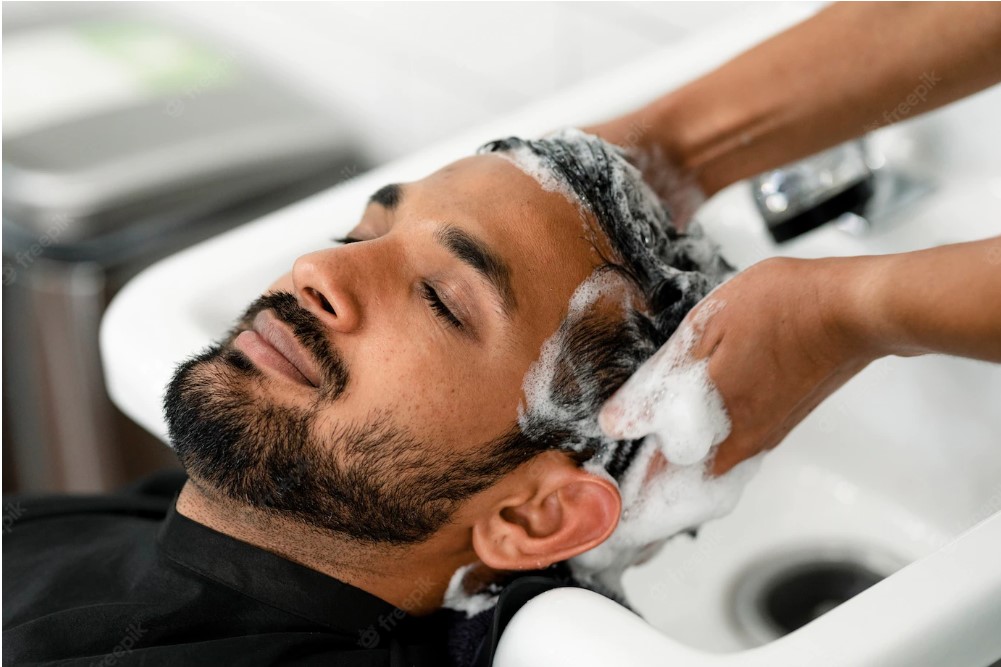
Well, washing your hair too infrequently can have negative effects on your hair’s health and appearance. In my personal experience, I have noticed that when I don’t wash my hair often enough, it becomes greasier and less manageable. This is because the natural oils produced by the scalp build up and cause a residue on the hair strands.
There are several potential consequences of not washing your hair often enough:
- Scalp issues: Washing your hair too infrequently can lead to a buildup of oil, dirt, and bacteria on the scalp, which may cause dandruff, itchiness, or even infections.
- Hair damage: The accumulation of oils and product residue on the hair can cause tangles, matting, and breakage. Additionally, this can make it difficult to comb or style your hair.
- Hair loss: Excessive oil buildup may cause hair follicles to become clogged, leading to hair loss.
- Unpleasant odors: As the scalp produces oil and sweat, it can create an environment that fosters bacterial growth, which may result in an unpleasant smell.
To maintain healthy hair, it is generally recommended to wash your hair every 2-3 days, depending on your hair type and personal preferences. This will help remove dirt, oil, and product buildup while still allowing your scalp to produce enough natural oils to keep your hair moisturized and manageable.
Recommendations For Maintaining A Healthy And Clean Scalp
Last but not least, maintaining a healthy and clean scalp is essential for overall hair health. To ensure a clean and healthy scalp, consider the following recommendations:
Regularly wash your hair
Washing your hair at least 2-3 times a week with a gentle shampoo can help remove dirt, excess oil, and dead skin cells, preventing scalp buildup and infections. Avoid using harsh shampoos that can strip your hair of its natural oils, leading to dryness and irritation.
Use a suitable conditioner
Applying a nourishing conditioner after washing your hair can help keep your scalp moisturized and prevent dryness and itchiness. Opt for a conditioner that is specifically designed for your hair type and scalp condition.
Massage your scalp
Gently massaging your scalp during hair washing can help stimulate blood circulation, which in turn promotes hair growth and prevents scalp issues. This massage also helps distribute natural oils evenly across your scalp, keeping it moisturized and healthy.
Keep your hair dry
Moisture and humidity can create a favorable environment for fungi and bacteria to thrive, leading to scalp issues. Make sure to dry your hair thoroughly after washing, and avoid leaving it wet for extended periods.
Maintain a balanced diet
A healthy diet is essential for overall health, including your scalp. Include foods rich in vitamins, minerals, and antioxidants to support hair growth and maintain a healthy scalp. Foods like leafy greens, fruits, whole grains, lean proteins, and healthy fats can provide the necessary nutrients for a healthy scalp.
Manage stress
Stress can have a negative impact on your hair and scalp health. Practice stress-relief techniques such as meditation, yoga, or deep breathing exercises to maintain a healthy balance and promote overall well-being.
Consult a professional
If you are experiencing persistent scalp issues, it is essential to consult a dermatologist or trichologist for a proper evaluation and treatment plan. They can recommend the best course of action to address your specific scalp concerns.
Conclusion
In conclusion, the frequency at which you should wash your hair depends on various factors such as hair type, scalp condition, and personal preference. While there is no one-size-fits-all answer to how often you should wash your hair, it is generally recommended to wash it every 2-3 days for most individuals.
Over-washing can strip the hair of its natural oils, leading to dryness and damage, while under-washing can result in a buildup of oil and dirt. It is important to find a balance that suits your hair and scalp needs, taking into consideration factors such as activity level, climate, and styling products used. Regularly assessing your hair’s condition and adjusting your washing routine accordingly will help you maintain healthy and beautiful locks.
FAQs
How Often Is Healthiest To Wash Your Hair?
For most hair types, washing 2-3 times per week is considered healthiest as it maintains natural oils and scalp balance.
Is It OK If I Wash My Hair Everyday?
Washing your hair every day can be excessive, stripping away essential oils and leading to potential dryness and damage.
How Many Days A Week Should I Wash My Hair?
It’s generally recommended to wash your hair 2-3 days a week to strike a balance between cleanliness and natural oil preservation.
How Often Should You Wash Your Hair If You Have Dandruff?
If you have dandruff, it’s advisable to wash your hair 2-3 times a week using a medicated shampoo to address the underlying issue effectively.
Meta Description
Discover how often you should wash your hair for optimal health, balance, and natural oil preservation. Expert advice on hair care.

